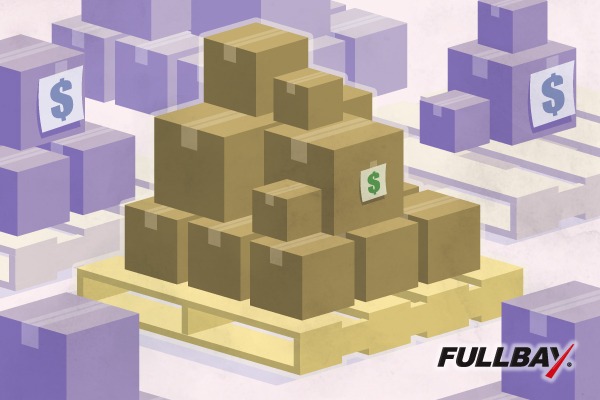How Buying Bulk Heavy Duty Parts Can Increase Profit

Buying parts is a key part of keeping your costs down while running a repair shop.
You’re well aware that you can typically negotiate better pricing when purchasing in bulk. A pallet of brake drums, for example, will usually cost you less per drum than buying just a few at a time here and there. There’s a variety of reasons behind this; maybe the vendor is trying to meet some sales targets, or they want to cut down on shipping costs. But as a general rule, in the parts world, higher volume equals lower costs.
That’s not to say that buying in bulk is without headaches. Here’s what goes into it, and how you can make it easier on yourself.

The Trick to Buying in Bulk
Consider buying your high-volume parts like those used in preventive maintenance in bulk. Think filters, grease, and oil. Be careful not to buy parts you rarely use, even though the pricing might be better, as carrying large inventories can have high (and often hidden) costs.
Like everything else in the world, relationships play heavily into what you end up paying for bulk parts. Your parts manager has a counterpart at the distributor you’re purchasing from. The two of them know what you purchase most often and how much it goes for – and the wholesale price is usually just the beginning. Your parts manager – or whoever is doing the parts ordering – spends a lot of their time haggling.
The Weird World of Markups
If you’re applying a standard markup scale to your parts, buying in bulk can actually hurt you.
Mark up scales set your selling price based on a percentage markup over cost. For example, a $100 part marked up 50% would sell for $150. That leaves you with a $50 profit (and 33% profit margin). But as you buy in bulk, your average cost for that part will go down, and so will the selling price along with it. If you reduced the cost of that part to, say, $90, the selling price would go down to $135.
Your profit would only be $45.
In short, the lower the cost, the lower the selling price. Which means you’re not getting any financial benefit at all from buying in bulk.
So how do you get the benefits of buying in bulk if it just ends up reducing the selling price? How do you recoup the money you shelled out on the parts and what you end up spending on storage? Not to mention being compensated for the ingenuity it often takes to find good deals on parts!
The answer is what we call a cost floor.
Introducing the Cost Floor
A cost floor allows you to set the minimum price used for marking up your parts. Let’s keep our example going. Say you decide the cost floor of your part is $100. That means that no matter how much or how little you spend purchasing the part, you will never sell it for less than $100.
When you negotiate a bulk purchase, your costs may go down to $90, or even lower. When you sell the part, with a cost floor the selling price will be calculated based on the higher rate of the cost floor or the actual cost. So in this example, Fullbay uses the cost floor of $100 to mark up the part. The part sells for $150. That’s a profit of $60 (40% profit margin).
That’s a lot more money for your shop, especially if you’re buying in bulk.
How Fullbay Makes it Easier
Sure, you can work out the mathematics of each transaction yourself – but why bother? Fullbay takes a lot of the work out of buying parts in bulk.
-
- Set the software to “Sell Part at Highest Cost Paid.” This automatically generates a cost floor for parts based off the highest price you have paid for those parts in the past.
- Set pack ratios when buying in bulk. Say you buy a drum of oil to sell by the quart. Fullbay will assign a pack ratio of 1:220 and handle all the math from there.
- Use SOP and velocity reports help you see how fast (or slow!) your inventory is selling, and when you’ll need to stock up on a particular part – if you do at all.
By keeping all of your information in one place and using the metrics you assign, Fullbay takes the guesswork out of dealing with selling in bulk. It’s all right there, ready to go whenever you are. How much time will you save by cutting out the haggling with distributors, the endless math, and the digging through paperwork? Let Fullbay show you.
We’d love to show you what else we can do. Request a demo and take back your time today!

